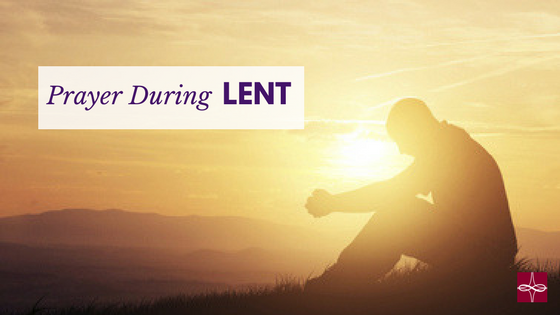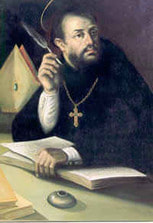|
“I don’t want to grow anymore.” This cantankerous proclamation has lately become my state of being. It sums up my exhausted emotions as I finish a two year service program, study for my comprehensive exams, move back into my Mom’s house and struggle to land a job. In grumbling to my program director that Growing up is hard and I don’t want to do it, she shared with me a piece of wisdom: “You are never done growing and you are never done with being challenged. In the growing and in the challenge you come to a deeper knowing of God.” While still dealing with the overwhelming idea of constantly growing, I have come to find truth in these words. I realized that not only is growing up hard, but being Catholic calls me to this constant growth- this constant conversion of heart!
Being Catholic calls me to encounter the messiness of challenges, the hardship of changes, and the realization that I will always be growing until I am with God. St. Augustine in his Confessions writes of this conflicted desire to want the virtues of God, yet not ready to struggle with the realities of attaining them. St. Augustine shares, “Give me Chastity, just not yet.” This is how I feel. I want holiness…just not yet do I want to have to confront the realities to attain it. I want to know God… but not deal with the messiness. I want to be filled with the Holy Spirit… but I don’t want to face the growth that the Spirit leads me to. Margaret Silf, in her book The Other Side of Chaos, writes, “But we will also take the journey in faith—not the kind of faith that knows all the answers and has mapped out the right and proper path, but the faith that says simply, “I don’t know, but I trust.” She goes on to say, “It matters that you are willing to open your heart to a wider, fuller reality, one in which over time, or perhaps beyond time, you will know that ultimately every painful harrowing of your life’s field, and every anxious tending of new and tender growth, are leading to a harvest that you can’t begin to imagine.” I try to know all the answers and map out all the “right” paths. I don’t know if I want to open my heart wider to a fuller reality. I want a plan, a job, certainty, etc. I want anything that will keep me from feeling these anxious and unsettling emotions of transition and change. Yet, as my spiritual director would say, that is not of God. God is in the messiness; he is in the hardship of leaving a place I have called home for two years. He is in the humbling action of moving back into my Mom’s home. He is found in the rejection letters coming in from jobs. There is no room for God and the work of the Spirit when I decide I know best and try to plan my path. So here I am, left with no other choice than to sit in the messiness of transition and chaos. My wanting to be with God and to know God has brought me here and it is here that I continue to learn to trust that He is with me. It may take many years, or my entire life, to see how this time led me closer to His will and to understand the need for restlessness and messiness. But, there is no doubt that by encountering the messiness and seeking God in it, I am growing in a way that will enable me to become the apostle He is calling me to be! So encounter your messiness, lean into your hardships, and know wherever you are God can be found. Pam Tremblay is a collaborator with the Catholic Apostolate Center. Editor's Note: This post was originally published on June 11, 2013
0 Comments
“God is offering us grace, let us be man enough to accept it!”
- Monsignor Vito Buonanno I heard this a couple weeks ago at a Knights of Columbus meeting and it has stuck with me ever since. Not only are these words empowering and driving us to seek God, but they also perfectly describe our Lenten journey. We are imperfect, we are lacking, we are human, but God still loves us. He is offering us the grace to seek Him, to journey toward him, to be with Him, let us accept this grace, take His hand, and walk with God! This is easier said than done. Last week we celebrated Ash Wednesday and many of us made Lenten promises to abstain from sweets, help out a neighbor, or pray a little bit more. And at the beginning of the Lenten season, many of us are most likely already struggling with our Lenten promise. But we cannot focus on those failures, rather we must focus on how to stand back up and continue walking toward Christ. We need to focus on converting ourselves to Christ. In his Ash Wednesday homily in 2014, Pope Francis said, “Once again Lent comes to make its prophetic appeal, to remind us that it is possible to create something new within ourselves and around us, simply because God is faithful, always faithful, for he cannot deny himself, he continues to be rich in goodness and mercy, and he is always ready to forgive and start afresh.” We have heard similar themes before in Baptism. In Baptism, we talk about beginning anew and starting afresh as we enter into the water, die with Christ, and are reborn in him. Our Lenten journey is a reminder of our Baptismal call to live out the Gospel and in doing so we convert others and ourselves to Christ. The Lenten journey is different for each and every one of us for we all convert ourselves to Christ in different ways. And yet at the center of every conversion has to be prayer. It is only through prayer that we can come to understand all that God is asking of us. It is only through a dialogue with Him that we can form ourselves in His image. It is only through prayer that we are able to examine ourselves, reconcile with Christ, and move forward walking with hope toward the light of salvation. Prayer is not always easy. Oftentimes I sit down to pray and am bombarded with thoughts about everything that I need to do that day, the things in my life that are worrying me, and the distracting sounds around me. Some people would say to find God in those distractions, to let Him speak to you through them, but that does not always work for me. When I am struggling to pray I turn to formed prayer, to writings of Archbishop Fulton Sheen, Pope Francis, or St. Thomas Aquinas. When I am struggling to pray I turn to Our Blessed Mother and pray the rosary. These things ground me in my faith and when I am finished I am ready to listen. This Lenten season lets us open our hearts to Christ so that He may guide us on this journey to Him. Jesus wants to love us, we just have to say yes! Nicholas Shields is a Young Professional in Washington, D.C. To learn more about Lenten prayer please check out our Lenten Resources! Today we celebrate the feast of St. Augustine, a Doctor of the Church and one of the most important theological writers of the 4th and 5th century. Many of us have either studied Augustine or at least heard some of his more famous quotes. One in particular is quite striking: “Our heart is restless until it rests in you.” These words are taken from one of Augustine’s most well known writings, the Confessions, in which Augustine discusses his long journey towards Christ and his conversion to Christianity.
“Our heart is restless until it rests in you.” These are powerful words. They direct us toward Christ in a simple way that speaks to everyone, for everyone has a restless heart. Pope Francis tells us that Augustine is speaking of three types of restlessness: “the restlessness of spiritual seeking, the restlessness of the encounter with God, the restlessness of love.” This restlessness, whether we recognize it or not, is a desire to know God and to have a deeper relationship with Him. None of this is easy, but God is always there for us. He is waiting with open arms, just as he waited for Augustine in his conversion to Christianity, so that we might rest in Him. Of course, the natural question to ask is how we can rest in the Lord. Augustine gives us a clear answer in his Confessions. He says: “No one knows what he himself is made of, except his own spirit within him, yet there is still some part of him which remains hidden even from his own spirit; but you, Lord, know everything about a human being because you have made him… Let me, then, confess what I know about myself, and confess too what I do not know, because what I know of myself I know only because you shed light on me, and what I do not know I shall remain ignorant about until my darkness becomes like bright noon before your face.” Augustine is giving us an important model of faith to follow, one of deep personal reflection, one that teaches us how to reflect and why we should reflect. Why? Because in reflection, we find God, in reflection, we find rest. But Augustine is very clear about how reflection works. He says, “What I know of myself I know only because you shed light on me.” Reflection is not solitary; we have to reflect with God. It is a prayer. We have all been told time and time again that prayer is an integral aspect of our everyday lives, but prayer does not have to be formulaic, it does not always have to be recited from the back of a card. These types of prayers are amazing and so helpful in directing our lives, but some of the most beautiful prayer is when we reflect with God, when we open up ourselves to Him and just talk to Him and listen to Him in our hearts. Who better to show us the importance of reflection than our Mother? Luke 2:19 tells us “And Mary kept all these things, reflecting on them in her heart.” Mary, the Mother of God, born without sin, who through her body brought Jesus into this world, still took the time to reflect with the Lord. Augustine and Mary are both powerful examples to us. They were holy people, but they were human. They faced struggles in their lives and in their faith. Their hearts were restless in their journeys toward the Lord. But through their example, through their lives, through personal reflection with the Lord, they show us how to find rest in Him. Nicholas Shields is a current District Deputy for the Washington, D.C. Knights of Columbus and a recent graduate of The Catholic University of America. "Commitment to ecumenism responds to the prayer of the Lord Jesus that 'they may all be one' (Jn 17:21). The credibility of the Christian message would be much greater if Christians could overcome their divisions and the Church could realize 'the fullness of catholicity proper to her in those of her children who, though joined to her by baptism, are yet separated from full communion with her' We must never forget that we are pilgrims journeying alongside one another. This means that we must have sincere trust in our fellow pilgrims, putting aside all suspicion or mistrust, and turn our gaze to what we are all seeking: the radiant peace of God’s face” (Evangelii Gaudium, n. 244).
Over the nine years that I was at St. Jude Shrine in Baltimore, Maryland, I had the opportunity to participate in and then to host an annual prayer service for Christian Unity. It became a very popular celebration and leaders from various Christian communities participated, including the Archbishop of Baltimore. To me, though, the most important people who participated were the people who went week to week to their faith communities in various parts of Baltimore, but never had the opportunity to pray together with Christians from other communities. Prayer is powerful and to underestimate its power to unite us leaves us lacking in the virtue of hope. Such hope is not naïve, but is based on firm trust in the work of the Holy Spirit. The annual Week of Prayer for Christian Unity will begin on Saturday, January 18th and conclude on the Feast of the Conversion of St. Paul on January 25th. Year after year, Christians are invited to pray that “they may be one.” St. Vincent Pallotti, patron of the Catholic Apostolate Center and founder of the Union of Catholic Apostolate, worked diligently for unity in the Church, using the liturgical Octave of the Epiphany in Rome as a means to unite in prayer members of the Eastern and Western traditions of the Catholic community who were rather disconnected from one another. This celebration was held in the city of Rome from 1836 until 1968. His feast day, on January 22nd, is in the middle of the Week of Prayer for Christian Unity. Collaboration of all Christians can lead us toward Pallotti’s vision, hope, and prayer that one day we may be “one fold, under one Shepherd, Jesus Christ” (Cf., Jn 10:16) Since our mission as the Catholic Apostolate Center is derived from the charism of St. Vincent Pallotti, who fervently prayed for such a day, we invite you to pray not only individually, but draw other Christians together in prayer. Prayer, though, is not the only thing that we can do. We can learn more about what the Roman Catholic Church teaches about the needed work for building unity among Christians. We invite you to explore the many resources that we have on our new Christian Unity page. May we also take up the call of the Catholic Church spanning from the time of the Second Vatican Council to the appeal of Pope Francis today: "The search for unity among Christians is an urgent task... We are well aware that unity is primarily a gift from God for which we must pray without ceasing, but we all have the task of preparing the conditions, cultivating the ground of our hearts, so that this great grace may be received" (Address to the Delegation of the Ecumenical Patriarchate of Constantinople, June 28, 2013). Our new Christian Unity resources can be found here. Fr. Frank Donio, S.A.C. is the Director of the Catholic Apostolate Center To promote real change, we must start with ourselves. Cultivating a culture, especially one contrary to what’s popular, requires education and conversion, beginning with those who cultivate. If we are to teach others, we must first put our best efforts into rooting ourselves in these truths. For me, it’s about a God-centric, and love-centric lifestyle. Cliché as it may be, above all things I believe in love. For many, including myself, this is a mission, an answer to a calling; a passion, a core-belief and a lifestyle.
This week, Yale University is holding a series of events organized under the title “Sex Week.” This has been taking place since 2002; however the University banned it last year stating that had created a “hostile sexual environment for women.”[1] Some may think given this assessment that the door had closed for good, but a few weeks later the decision was reversed. The goal of Sex Week is supposed to be sexual education, and an opportunity to “discuss sex openly.”[2] Another group on campus decided to provide an alternative to Sex Week, sponsoring talks and activities of their own because they believe Sex Week inappropriately emphasizes “sheer, gratuitous and physical pleasure.”[3] I know this may sound like a sharp critique of a program that sponsors the event “Work It: Founder of Babeland Sex Toys talks about Queer-Friendly Business and Pleasing Women”, but hear me out. One area that I have devoted much of my time and study to is John Paul II’s Theology of the Body and overall call to chastity and sexual dignity. A topic many young adults avoid, I see it as absolutely vital not only for my character, but also for my faith journey and ultimately my vocation. The idea that our bodies can have a specific purpose in and of themselves is not a widely accepted idea in current society, never mind on a college campus. Although many dating couples claim to be unconcerned about the permanence of their relationship and immune to the adverse consequences of their actions, sex for such couples introduces an exclusively physical bond that is illusory, disordered and devaluing of the gift of total intimacy. It is possible for a wide variety of people to agree that it is easy for us to mistake physical intimacy for love. This is a logical idea because physical intimacy has a unifying power, which is one of the attributes of love. The problem lies in the fact that lust also has a tendency to draw two people together, and this counterfeit intimacy can be difficult to distinguish from the real thing.[4] This is not to say that the lack of chastity as a core value causes all relationships to deteriorate into lustful encounters, but rather that the likelihood of a couple being able to accurately assess the worth and sincerity of a relationship is less. When a couple is dating, it is love that they seek. As stated in the Catechism, Catholics believe that “either man governs his passions and finds peace, or he lets himself be dominated by them and becomes unhappy.”[5] It is often the case that a person’s intentions become masked by desire, usually of a sexual nature, and that is where chastity comes into play. Supporters of Sex Week have criticized the founders of True Love Week for having a “narrow minded view of sex” and “encouraging marriage” rather than providing ‘sexual education.’[6] While sex is pleasurable, it maintains greater importance than pleasure. Most couples do not deliberately use each other, but sometimes the objectification that ensues is unconscious. Though this is not a constant with every couple, pop culture and magazines, like Cosmopolitan, “urge people to take the sexual pleasure that’s due them”[7] creating an environment that praises such activity. This might be why Sex Week never assumes any of its participants are in any sort of committed relationship. However, the fact remains that the act of sex between two people creates a bond dissimilar to that of any other. When two people choose to promote and express their romantic affection or “love” through fornication, the trivialization of human sexuality and its virtue is present. Christopher West, who has written several books on theology of the body, describes this as “telling lies with the body”. In sex, the body is saying, “I give myself to you freely, totally, faithfully, and fruitfully”… Sound familiar? If you’ve ever been to a wedding, you’ll recognize those lines from traditional wedding vows. In marriage, God enables humans to use their bodies to create a love that is more than just the sum of their parts. By enjoying the expression of full love without giving full love, and accepting the commitment and sacrifice, the couple wounds the relationship and one another. In the words of Pope John Paul II, “Only the chaste man and the chaste woman are capable of true love.” By keeping the focus and order of dating relationships on happiness, couples come to discover that sacrificial love brings true joy. Where there is selfishness, there is no love. Taking into account the intrinsic truths of sexual bonding, properly tempered desires, and a proper understanding of the value of a full gift of self is necessary even for couples neglecting to acknowledge their damaging present actions in order to prepare for a potentially permanent and unitive future. To reiterate, I understand these are not popular views, and the ideas and facts I have presented may provoke less excitement than a sex toy exhibition. However, nothing short of “til death do us part” would be making any of Sex Week’s agenda relevant to this university student. In fact, some of it will never apply to me, and that’s okay with me. I know what God’s love looks like and it’s because of this that I know my own worth and dignity as a woman. This is the love that’s worth defending, and certainly worth waiting for. Angela Chiappetta is the Program Development Associate for the Catholic Apostolate Center. [1] http://www.thecollegefix.com/post/10123 [2] http://www.yaledailynews.com/news/2012/feb/02/true-love-week-provides-alternative-to-sex-week/ [3] http://www.yaledailynews.com/news/2012/feb/02/true-love-week-provides-alternative-to-sex-week/ [4] Evert, Jason. If You Really Loved Me. Ann Arbor, MI: Charis /Servant Pub., 2003., 62 [5] Catechism of the Catholic Church. Liguori: Liguori Publications, 1994. §2339 [6] http://www.yaledailynews.com/news/2012/feb/02/true-love-week-provides-alternative-to-sex-week/ [7] Eden, Dawn. The Thrill of the Chaste: Finding Fulfillment While Keeping Your Clothes On. Nashville: Thomas Nelson, 2006. 2 |
Details
Archives
July 2024
Categories
All
|
About |
Media |
© COPYRIGHT 2024 | ALL RIGHTS RESERVED





 RSS Feed
RSS Feed